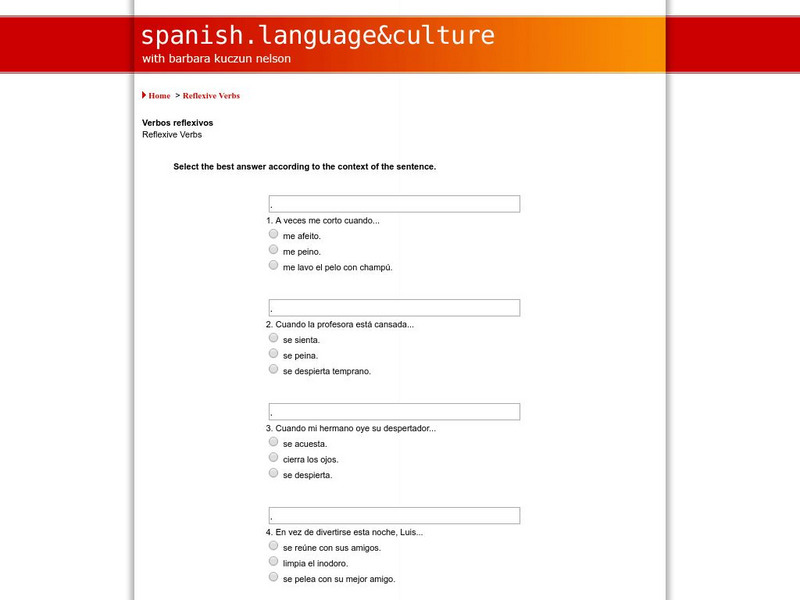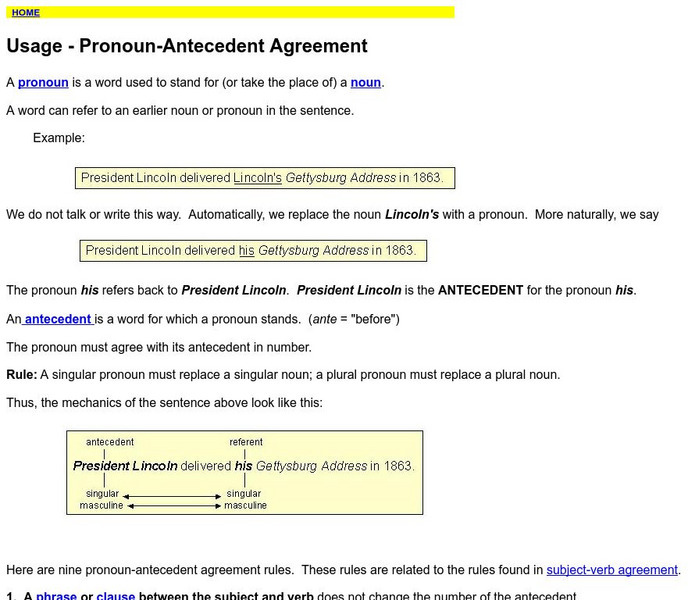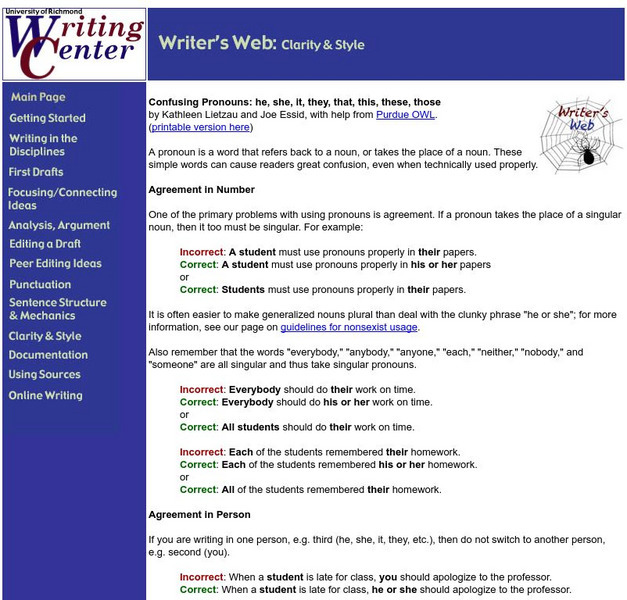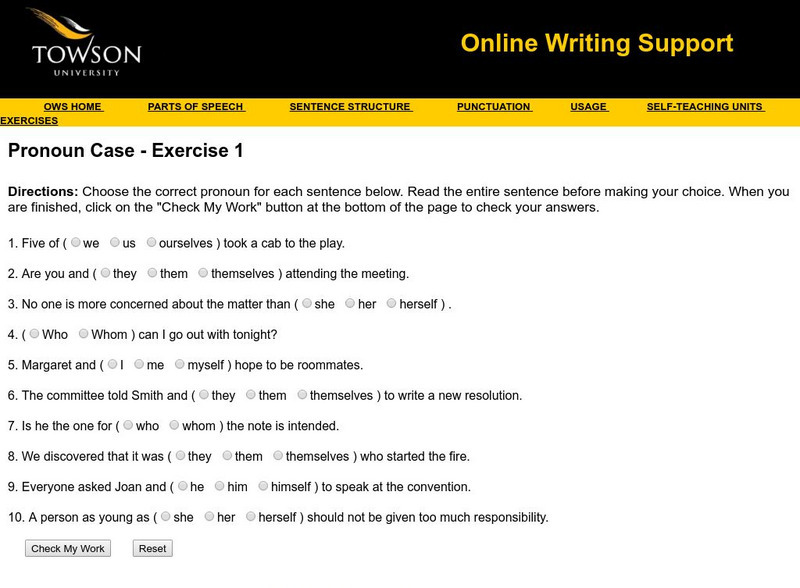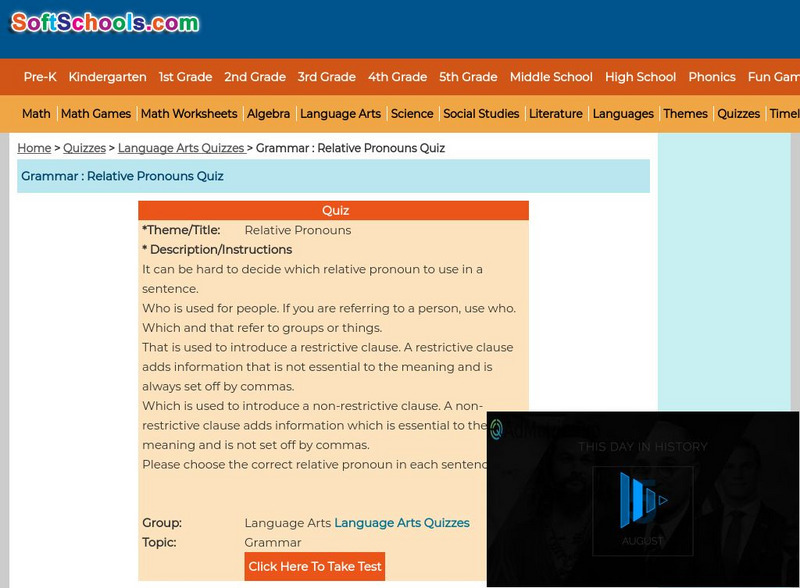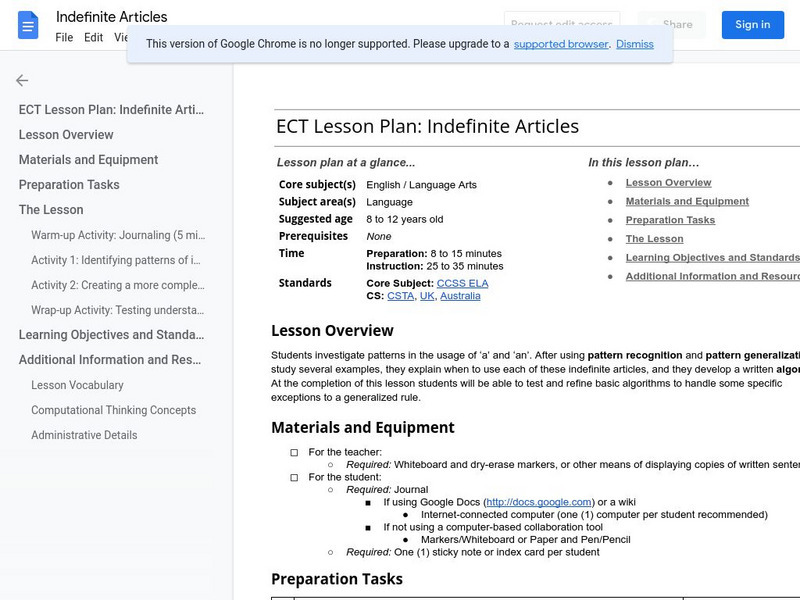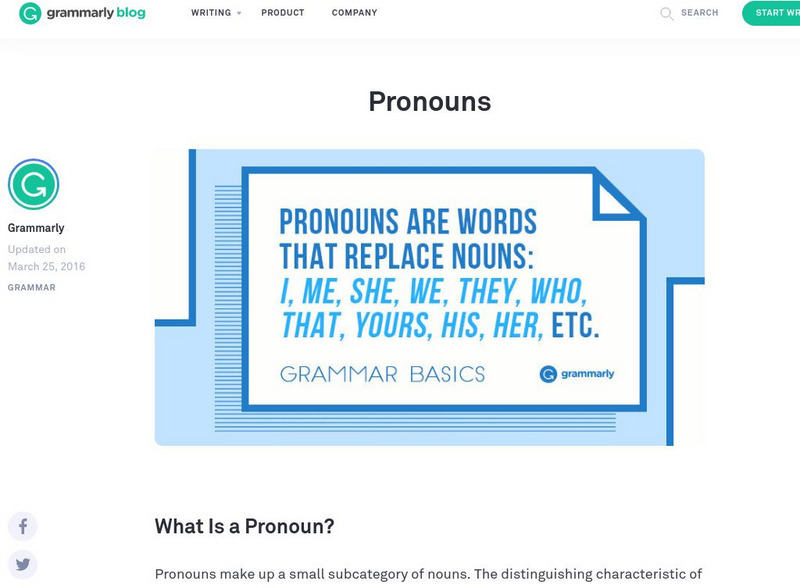University of Victoria (Canada)
The U Vic Writer's Guide: Grammar: Pronouns
Defines pronouns and briefly touches on the two most common problem areas: gender specificity and agreement.
Robin L. Simmons
Grammar Bytes: Pronoun Reference Power Point
Learn about vague pronoun references and practice identifying them in questions that could be found on standardized tests.
Robin L. Simmons
Grammar Bytes: Pronoun Shift Power Point
Learn about using pronouns consistently and practice identifying them in questions that could be found on standardized tests.
Able Media
Classics Technology Center: Online Latin Drills
Designed to coordinate with the Oxford Latin Course, these comprehensive drills will help any student practice a variety of skills. Each chapter has at least 2 exercises. However, the drills for volume 3 don't appear to work all the time.
Colby College
Spanish Language & Culture: Spanish Reflexive Verbs Exercises
This site is great practice from Colby College with some of the more common reflexive verbs. This exercise is not as concerned with testing grammatical applications as it is with testing for the meaning of the reflexive verb in context....
Colby College
Spanish Language & Culture: Reflexive Verbs in Song
Complete the lyrics of a song with a variety of reflexive constructions. A great way to review some basic reflexive verbs and become familiar with other reflexive verbs that are not so basic.
University of Calgary
Univ. Of Calgary: Parts of Speech: Personal, Possessive & Indefinite Pronouns
Defines and lists indefinite pronouns. Distinquishes between indefinite pronouns and indefinite adjectives.
Other
Project l.a.: What Are Pronouns?
An online slide show defines pronouns and explains their use at this site. A link at the end leads to an interactive quiz which provides immediate feedback and explanations for each answer.
British Council
British Council: Indefinite Pronouns
Learn about indefinite pronouns through explanations, examples, and practice exercises.
Towson University
Towson University: Usage Pronoun Antecedent Agreement
An explanation of pronouns, antecedents, and the rules of pronoun-antecedent agreement. Examples of labeled sentences, indefinite pronouns, compound subjects, collective nouns, plural nouns, and more.
Other
Kim's Korner: Color Coded Parts of Speech Kinesthetic Lesson Plan
Students can brush up on their knowledge of the parts of speech when they do this lesson. This site contains a kinesthetic lesson plan that caters to children with all types of learning styles.
University of Richmond
University of Richmond: Confusing Pronouns
This site discusses the need to avoid ambiguous pronoun references. Includes a helpful rewriting examples. Brief, but informative and factual.
Robin L. Simmons
Grammar Bytes: The Antecedent
Printable information is provided that demonstrates how to identify an antecedent in the context of a sentence.
Towson University
Towson University: Ows: Pronoun Case Exercise 1
This is a 10-question, self-grading exercise/quiz on Pronoun Case.
Soft Schools
Soft Schools: Relative Pronouns
Learn about relative pronouns, then take a short quiz to check mastery.
E Reading Worksheets
E Reading Worksheets: Pronoun Worksheets
In this learning module, students will learn more about pronouns. Video lessons and reinforcement worksheets are provided. This module is designed to support Tier I, Tier II, and Tier III students in various grade bands.
Google
Google for Education: Indefinite Articles
Students identify a pattern in the usage of the articles 'a' and 'an' and then write an algorithm that others can follow to correctly use these two indefinite pronouns, and they identify possible exceptions the general rule.
TES Global
Blendspace: Subjective and Objective Pronouns
A learning module that includes eighteen links to videos, activities, images, quizzes, word lists, and more that teach about subjective and objective pronouns and their use.
Grammarly
Grammarly Blog: Pronouns
This page focuses on pronouns including definitions, personal pronouns, antecedents, relative pronouns, who vs. whom, demonstrative, indefinite, reflexive and intensive, possessive, and interrogative pronouns. Examples are provided for...
Grammarly
Grammarly Blog: Everyone vs. Every One
This article provides the rules for the proper use of the words "everyone" and "every one" with examples.
Grammarly
Grammarly Blog: Pronoun Case
An explanation with examples of subjective, objective, and possessive case pronouns.
Grammarly
Grammarly Blog: Possessive Pronouns: Rules and Examples
An explanation with examples of possessive pronouns and how they are used in sentences.
Grammarly
Grammarly Blog: Pronoun Reference
An explanation with examples of pronouns and how they are used in sentences.
Other
Spanish in Texas: Spanish Grammar in Context Introduction to Pronouns
This Spanish language reference clarifies information about pronouns. Lists of the following types of Spanish pronouns are included: subject , direct object, reflexive, demonstrative, relative , indefinite, and interrogative are...




